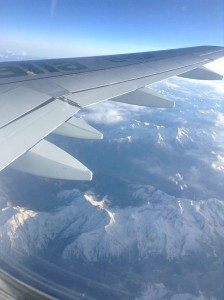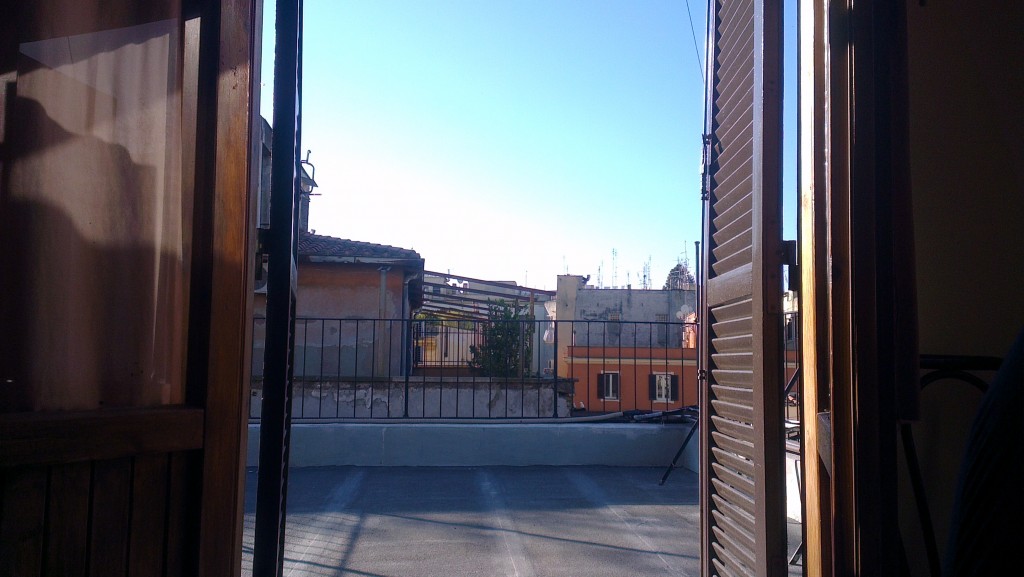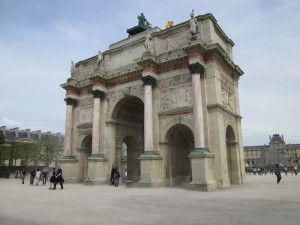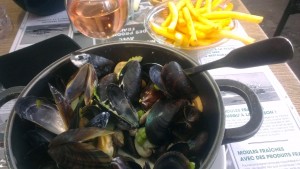Reading a passage in a fantasy novel this evening, I was transported back to Christmas Day 2011 in the rain forests of the Eastern Congo. It was a weird kind of day and in retrospect so exotic as to be life-changing. I don’t think it felt that way at the time but at this distance, it’s hard to tell. We’d gone hunting with the local people. We’d been there a day or two and taken a couple of walks across the bridge over the river which dominated the whole area. I remember being a little terrified by the ant-hills sixty feet or so up on giant tree branches. It was a little like being in a National Geographic special without the comforting best-British-voice commentary.
We joined the hunters around their fire. I remember reading before the trip that they used marijuana in their hunt preparations but we weren’t out to get high. The idea of being intoxicated in those forests, where one wrong step could lose you forever, is not appealing. It was that thick and intimidating. As we walked, the group I was with got a little behind the rest and within moments couldn’t see the others and were scrambling to find the hidden-in-the-undergrowth path.
After a while, we reached the point where they left us behind with one or two of their people; strung up their nets and faded into the forest. I’m sure they knew it would be a bad hunt because we were too noisy – strange, large people moving around when we should have been quiet.
The sounds drifted back to us through the forests. Thick, dense, suffocating forests. You could hardly see any patch of sky when you looked up. It was hot and humid and around us were giant, unfamiliar plants. I remember standing there – time seemed distorted and somehow irrelevant – and following the trunk and branches of a giant tree. Somewhere the sounds echoed. The echoes were hard to follow in that dense, overgrown clearing. The sounds were eerie. Terry Pratchett talked in one of his books about words being manipulated and used up and sent out to earn a living on the streets. I don’t think I really ever had a reference for the word “eerie” until I heard the unworldly sounds of the “pygmy” hunters driving pray towards their nets on that strange afternoon.
When I started travelling in Africa, a dear friend encouraged me to start keeping a record of each day of the travels. The discipline of writing is so valuable in capturing the moments that would otherwise be forgotten, an emotional and personal record of the things that happen. Perhaps the most specific moment of realising how important it is to record things was the moment I remember writing down in my travel journal that I’d seen a black and white monkey on the trip between Kampala and Fort Portal, seen from the window of the bus, and feeling a little like a scientist recording the sighting of a rare animal. I wouldn’t necessarily have forgotten it, but writing it down cemented the moment in my memory and made it possible to refer back to notes when I doubted, as time fades the memories, what I’d seen.
In retrospect, in hind-sight, so far and so long away, I’m struck by how different the immersive experience of being in the DRC was from the organised, planned tourism experience of Korea. On that day, so long ago, I wrote so little about the hunt. It seems so simple compared to what I am now able to understand as the impact.
Someone asked me recently if I think that travel really broadens your horizons and makes you a better person. I don’t know about the better person bit but I do know that travel changes some of your perspectives – travel means that when I read in a fantasy novel about exploring native woodlands on a faraway version of the planet, the first thing I think of is hunting with pygmies on that strange, faraway Christmas Day. My sense is that that isn’t the norm. My response to the question was to try – I fear rather inarticulately – to explain that travel stretches the borders of the possible perspectives one can hold. For me, travel means that I compare things to that strange afternoon and consider ants and bugs in terms of a range including the rainforests of Congo, instead of the standard spectrum of the country I happen to have grown up in. And my sense, humble though it is, is that the same is probably true in terms of the kind of big conversations about politics and economics and freedom.
 I was flying to Rome. This was only my second trip ever to Europe. It felt so odd not only to have had the opportunity to explore Paris but now to be heading off to another European capital that has existed, for me, only in stories and pictures. I boarded the plane, realising with a sigh that the person in the seat next to me was a very small (admittedly cute) little girl with brown curly hair and
I was flying to Rome. This was only my second trip ever to Europe. It felt so odd not only to have had the opportunity to explore Paris but now to be heading off to another European capital that has existed, for me, only in stories and pictures. I boarded the plane, realising with a sigh that the person in the seat next to me was a very small (admittedly cute) little girl with brown curly hair and


